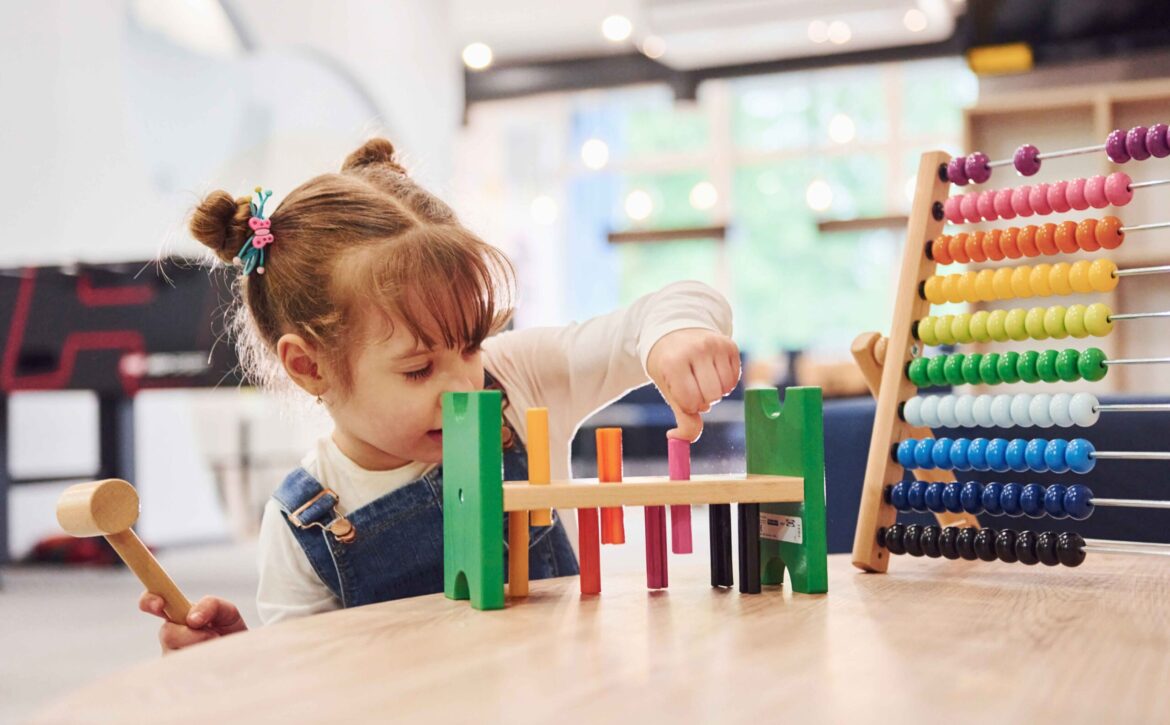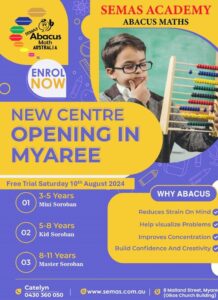Does Abacus Education Hold the Key to Faster Mental Calculations?
In a world where technology is becoming increasingly important, abacus education can speed up intellectual computations. Imagine learning to manipulate beads on a frame to transform your brain into an advanced computer. This ancient practice claims to speed up maths and boost memory, focus, and cognition.
As we explore abacus education, we learn how this time-tested instrument may help you realise your full potential and shift your thinking about numbers, making maths entertaining and accessible for all ages.
Understanding Abacus Maths
Abacus maths is as simple as moving beads on a frame but requires several mental processes. Abacuses are mathematical tools with rectangular frames, vertical rods, and moving beads. Users can add, subtract, multiply, and divide by moving beads, which represent numbers.
As they exercise the abacus, they develop a “mental abacus,” or imagining the bead moves. This mental image lets people calculate without an abacus faster and more correctly. You engage both sides of your brain when doing abacus maths. The left hemisphere thinks and does maths, while the right hemisphere sees and understands space.
Brain benefits of abacus maths
Many people adore abacus maths because it helps kids learn numbers and benefits their brains. Learning to use an abacus can improve brain function. Using an abacus consistently enhances your left and right brain. This boosts brain activity and cognition.
Learning abacus improves pupils’ memory, focus, and mental clarity. Experts think learning to use an abacus helps improve problem-solving. Because it requires pupils to break down problems, the abacus helps them believe analytically.
Does abacus math improve focus?
Abacus maths can help you focus longer, which is a lesser-known benefit. Modern life is full of distractions, especially digital devices, making focusing harder. Students must concentrate on how the beads move and what numbers they represent to utilise an abacus.
This focus improves maths and helps kids focus in general. As they practise using an abacus, pupils must visualise the beads, which utilise their whole minds. By adopting this mental discipline, students learn to ignore distractions and focus.
Is abacus maths functional in today’s tech-filled world?
Since computers are so prevalent and new technology is continuously emerging, many wonder if abacus maths is still helpful. Why study maths by hand when you can take shortcuts using your phone or calculator? The specific brain benefits of abacus skills are the answer. Technology can do maths faster than the brain, but it can’t match the cerebral workout of abacus use.
Beyond numbers, abacus training improves memory, problem-solving, and critical thinking. Research also shows that overusing technology for simple math activities might dull your thinking. However, abacus maths keeps the brain active, improving mental health throughout life.
Who Should Learn Abacus Math?
When people hear “abacus maths,” they think of kids, but it can help anyone. Any age can benefit from this classic practice. Abacuses help kids develop number sense, critical thinking, and focus. It inspires kids to learn and trust maths. By using abacus learning adults solve issues faster and more accurately.
In industries like banking, engineering, and data analysis, quick mental computations are fundamental. Abacus maths can also reduce cognitive deterioration in elders. Seniors can stay sharp by studying mental calculations regularly.
How to Perform Mental Calculations Using Abacus Maths
Follow these steps to use the power of abacus maths to do maths faster in your head:
- Step 1: First, picture an abacus in your head. Think of the different places of the beads as representing different values.
- Step 2: When you have to do a calculation, break it down into smaller pieces you can handle.
- Step 3: Picture yourself moving the beads on a made-up abacus for each action. Think about how the places of the beads will change as you add, subtract, multiply, or divide.
- Step 4: Your mental calculator will get better with regular practice. Every day, solve questions that get a little harder as you go to build your confidence and speed.
- Step 5: Try your math skills by answering problems that get harder and harder without using an abacus. This will help you improve mental maths and make the skills you’ve learned stick.
Conclusion
Is abacus maths the key to speedier mental maths? Of course. It speeds up maths and improves other thoughts. Historically, abacus maths has improved memory, focus, and problem-solving. Abacus numbers can help students improve their math skills and adults stay sharp. The visual and tactile nature of abacus learning also fosters a deeper understanding of numerical concepts. To dive deeper into this, read our blog, “How to practice abacus education?” for helpful tips and insights.












